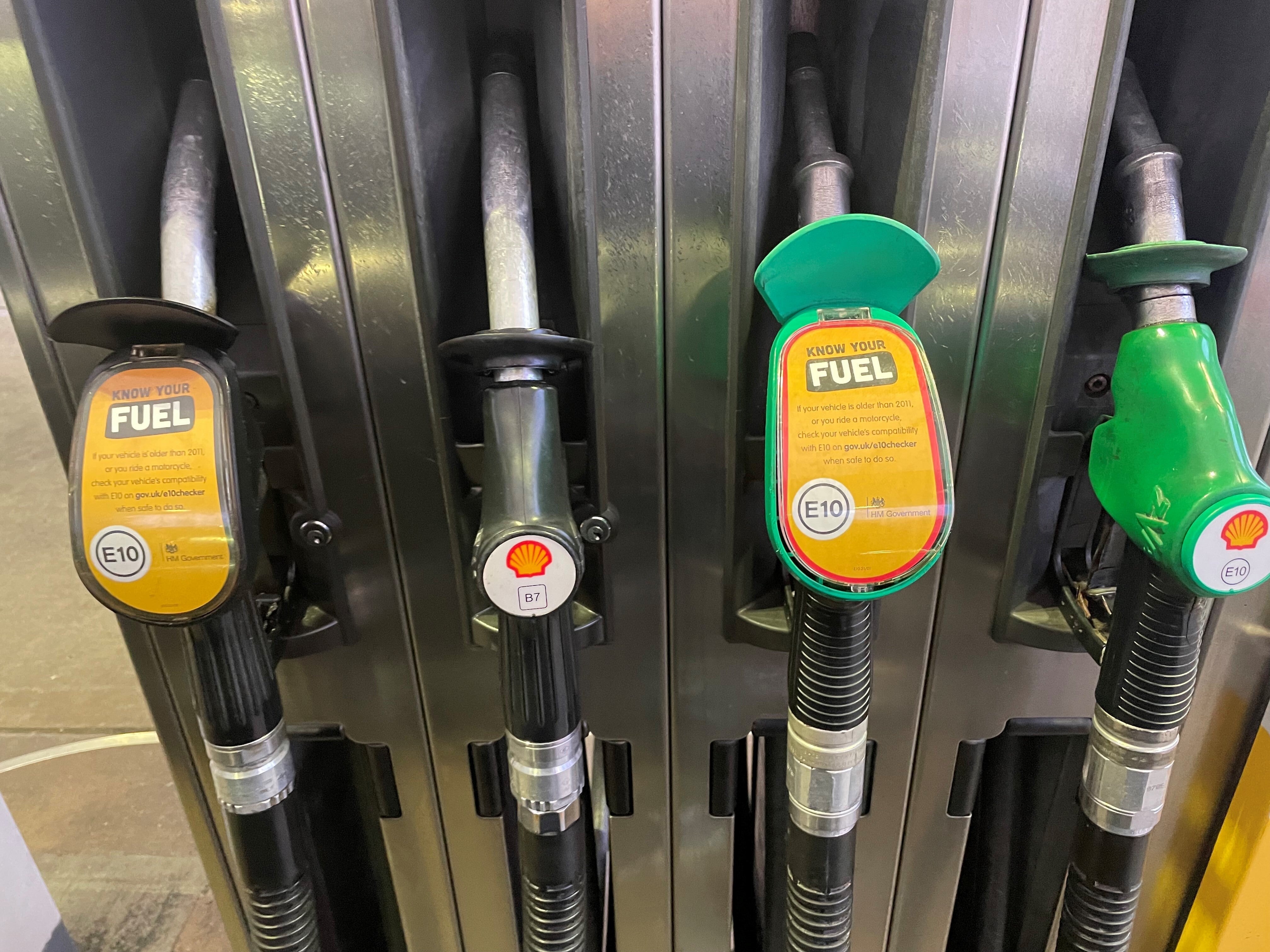Drivers suffer highest weekly hike in fuel prices on record
The weekly increases of 3.8p for petrol and 5.2p for diesel are the largest in records dating back to June 2003.

Drivers have been hit by the steepest weekly hike in fuel prices in at least 18 years due to Russia’s invasion of Ukraine.
The average price of a litre of petrol at UK forecourts rose from 149.2p on February 28 to 153.0p on Monday, according to the Department for Business, Energy and Industrial Strategy (BEIS).
Average diesel prices rose from 153.4p to 158.6p over the same period.
The weekly increases of 3.8p for petrol and 5.2p for diesel are the largest in records dating back to June 2003.
They mean the cost of filling up a typical 55-litre family car has increased by more than £2 over the past week.
Oil prices have spiked due to concerns over the reliability of supplies amid the war in Ukraine.
The price per barrel of Brent crude – which is the most commonly used way of measuring the UK’s oil price – reached 139 US dollars on Monday, which was its highest level in 14 years.
Steve Gooding, director of the RAC Foundation, said: “With the tragedy in Ukraine showing no signs of abating, it looks like we all need to brace for forecourt prices to continue upward, not least because they tend to lag oil price movements by a week or two.
“Inflation is hitting household budgets on all sides. The fact that transport is routinely the single biggest area of household expenditure will make forecourt price hikes particularly hard, because for most households those transport costs are associated with running a car.
“Whilst higher pump prices may make more people consider switching to electric cars, that’s not a realistic overnight fix.
“In the short term, the best most of us can do is look for ways to drive less, perhaps by sharing trips or working from home, and going easy on the throttle when we do drive.”
Figures from data firm Experian Catalist based on a different methodology from the one used by BEIS suggest the average cost per litre of petrol on Monday was 156.4p, while diesel was 162.3p.
Bookmark popover
Removed from bookmarks